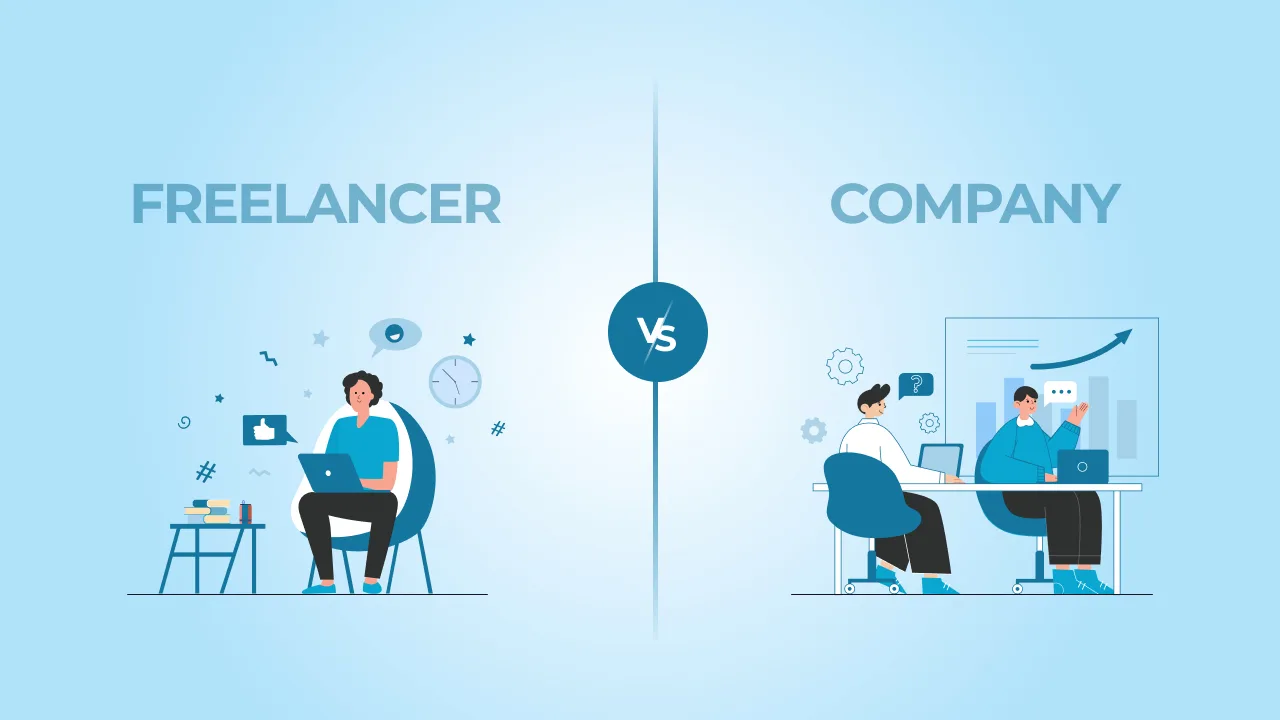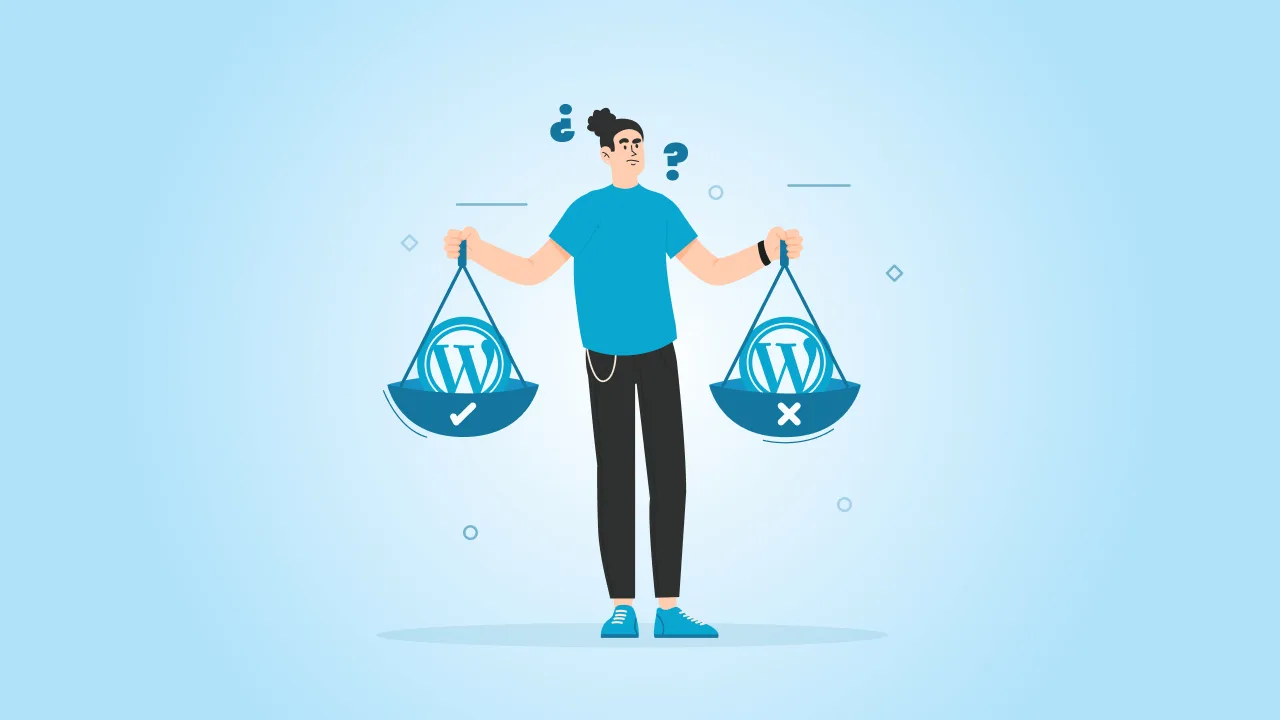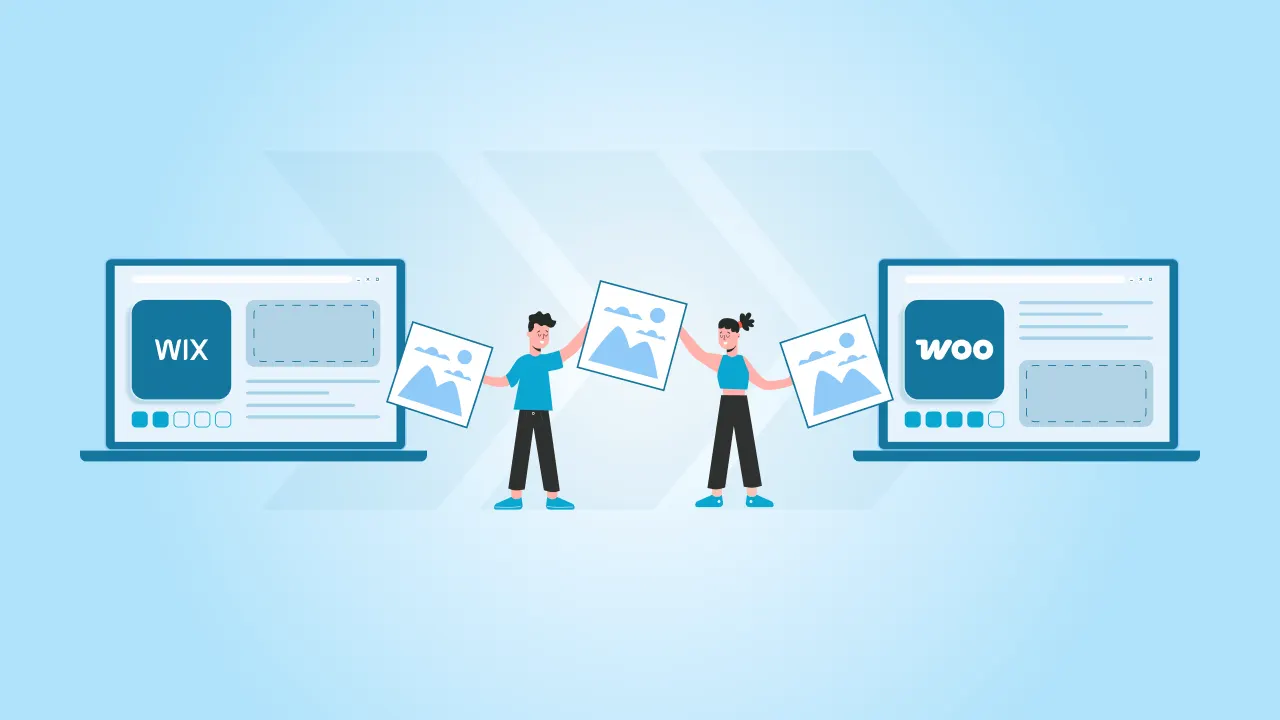Many businesses face a common dilemma when planning their digital strategy: Do they need website development or software development? Honestly, both are essential in today’s tech-driven world, but they serve different purposes.
A website is often the front door to your business, creating an online presence that attracts and engages customers.
On the other hand, software development can provide tailored solutions that streamline operations, improve productivity, or create unique user experiences.
Now, deciding which one is right for your business can feel slightly overwhelming, but understanding the key differences will help you make a smart investment that aligns with your long-term goals.
In this post, we will help you navigate this decision and choose the best fit for your needs.
However, let’s start with the basics first.
What is Website Development?

Website development refers to the process of building and maintaining a website that functions seamlessly on the web. It typically involves creating everything from the visual aspects users interact with to the behind-the-scenes code that makes the site work properly. Website development is essential for establishing an online presence, showcasing a brand, and enabling customers to connect with a business.
Primary Components of Website Development:
- Front-End Development:
This is what users see and interact with on a website, often referred to as the “client side.” It includes everything from layout and design to buttons, images, and text. Developers use languages like HTML, CSS, and JavaScript to create visually appealing and user-friendly websites. - Back-End Development:
The back end, or “server side,” involves everything that powers the website behind the scenes. This includes managing databases, server logic, and the functionality that supports front-end operations. Back-end developers work with programming languages like PHP, Python, Ruby, or Node.js to ensure that the site performs smoothly and can handle requests from users. - Content Management System (CMS):
A CMS allows non-technical users to manage and update the website’s content easily. Popular CMS platforms like WordPress, Joomla, or Drupal provide an intuitive interface to add pages, blog posts, images, and more, without needing to dive into coding.
When Do Businesses Need Website Development?
Businesses typically require website development in several scenarios:
- Launching a new website: When a business is starting out or undergoing a rebrand, a website is important to establish an online presence and attract potential customers.
- Creating a web-based portfolio: Professionals and agencies often need websites to showcase their work, skills, and experience.
- Developing an e-commerce platform: Businesses selling products or services online require robust websites with shopping cart functionality, payment gateways, and customer account management.
- Expanding digital marketing efforts: A well-optimized website is a key asset in any digital marketing strategy, helping to generate leads, drive conversions, and boost brand awareness.
Common Website Features
- Responsiveness
A responsive website adjusts its layout and functionality based on the screen size of the device it’s being viewed on. With mobile traffic dominating the web, responsiveness ensures an optimal experience across smartphones, tablets, and desktops. - User Interface (UI)
The design and layout of the website, or the UI, focuses on the visual elements users interact with. An effective UI is intuitive, visually appealing, and aligned with the brand’s identity, ensuring that users can easily navigate and engage with the site. - User Experience (UX)
UX goes beyond the visual design to ensure that a website is easy to use, accessible, and provides value to users. Good UX involves smooth navigation, fast loading times, and ensuring users can find the information or perform actions (like making a purchase) effortlessly.
In short, website development is a key investment for businesses aiming to grow their online footprint, connect with customers, and stay competitive in a digital-first world. Whether you’re launching a simple portfolio site or a complex e-commerce platform, the right development approach can set your business up for success.
What is Software Development?

Software development refers to the process of designing, creating, testing, and maintaining software applications that run on various platforms, including computers, mobile devices, and cloud-based systems.
Unlike website development, which focuses solely on creating websites, software development is much broader. It encompasses the creation of custom solutions that address specific business needs, whether they are internal tools, customer-facing applications, or large-scale enterprise systems.
Use Cases for Software Development

- Custom Internal Software
Many businesses require software tailored to their specific operations. For example, a company might need a customized CRM (Customer Relationship Management) system, inventory management tools, or HR software to manage employee data and performance. - Mobile Apps
With the growing use of smartphones, businesses often develop mobile applications to enhance customer engagement or streamline internal processes. Mobile apps can range from consumer-facing platforms (e.g., shopping or banking apps) to employee-focused tools (e.g., communication or task management apps). - Enterprise-Level Systems
Large organizations may need complex software systems to handle large amounts of data, integrate various business processes, and support multiple departments. Enterprise software often includes ERP (Enterprise Resource Planning) systems that connect finance, supply chain, HR, and other functions in a unified platform.
Types of Software Development
- Desktop Software Development
Desktop applications are software programs that run on individual computers or workstations. These are commonly used in environments where high-performance or offline functionality is critical, such as video editing, accounting software, or CAD programs used in engineering. - Mobile App Development
Mobile app development focuses on creating software applications that run on mobile devices such as smartphones and tablets. These can be developed for specific operating systems (e.g., iOS, Android) or as cross-platform apps that work on multiple devices. Mobile apps are especially important for businesses that want to offer personalized user experiences or require on-the-go functionality. - Software as a Service (SaaS)
SaaS is a cloud-based software model where applications are hosted online and accessed via a web browser, usually through a subscription model. Popular SaaS examples include platforms like Salesforce, Google Workspace, or Zoom. SaaS development is ideal for businesses offering scalable services to a broad audience, providing flexibility, automatic updates, and remote access.
Key Differences Between Website Development and Software Development
| Aspect | Website Development | Software Development |
|---|---|---|
| Purpose | Establish an online presence, showcase brand, engage customers. | Solve specific business problems, streamline operations, or enhance productivity. |
| Complexity | Often uses templates or content management systems (CMS). | Fully customized solutions tailored to business needs, from scratch. |
| User Interaction | Accessed via web browsers for customer-facing interaction. | Can be web-based, desktop, or mobile apps with specific functionalities. |
| Maintenance | Requires ongoing updates for design, content, and security. | Focuses on adding new features, bug fixes, and performance improvements. |
| Cost | Lower initial cost, depending on the template or custom design. | Typically higher due to full customization, development time, and complexity. |
| Technology Stack | Front-End: HTML, CSS, JavaScript, React, Angular, Vue.js. Back-End: PHP, Python, Ruby, Node.js. CMS Platforms: WordPress, Drupal, Joomla. |
Languages: Java, Python, C#, Ruby, Node.js, Swift, Kotlin. Databases: SQL, NoSQL (MongoDB, etc.). Cloud Platforms: AWS, Azure, Google Cloud. |
Contact us today to explore tailored development solutions that align perfectly with your business needs!
Which One Should You Choose for Your Business?
When deciding between website development and software development, the right choice depends on your business goals and operational needs. Here’s how you can determine which solution is best for your business:
1. Website Development: Best for Online Visibility and E-Commerce
If your business is focused on establishing an online presence, engaging customers, or selling products/services, website development is likely the best option. Websites are ideal for:
- Brand Visibility: If your goal is to showcase your business, provide information, and drive customer engagement, a website acts as your digital storefront.
- E-Commerce: For businesses that want to sell products or services online, websites with e-commerce functionality (shopping carts, payment gateways, product catalogs) are essential.
- Marketing and Lead Generation: A website can serve as the hub for your digital marketing strategy, capturing leads through forms, providing resources, and driving traffic from social media or search engines.
Example:
- Local Restaurant: A restaurant needs a website to showcase its menu, location, contact details, and customer reviews. The website may also include an online booking or ordering system, but the focus is on visibility and accessibility.
- Retail Store: A small retail business may require an e-commerce website to showcase and sell products, manage orders, and interact with customers online.
2. Software Development: Best for Custom Functionality, Data Management, and Productivity Tools
For businesses that need more than just an online presence and require custom solutions to address internal workflows, customer-specific functionality, or data management, software development is the better choice. It is ideal for:
- Custom Functionality: If you need tailored tools or systems that address specific business challenges—such as managing large amounts of data, processing unique transactions, or automating complex workflows—software development offers the flexibility and control needed.
- Productivity Tools: Businesses that require internal tools for project management, team communication, or business analytics benefit from custom software that improves efficiency and collaboration.
- Mobile and Desktop Applications: If you need software that runs independently of a web browser (e.g., mobile apps for customer engagement or desktop applications for internal use), custom software development is necessary.
Example:
- Logistics Company: A logistics firm that needs a system to track shipments, manage inventory, and optimize routes will benefit from custom software development. A website might serve a public-facing function, but the core of their operations will depend on custom software that handles logistics complexities.
- Healthcare Provider: A healthcare business might need a custom platform to manage patient records, schedule appointments, and handle billing. Software development can ensure security and compliance with regulations while providing the specific functionalities required by the healthcare industry.
Conclusion
- Choose Website Development if your primary goal is to establish an online presence, drive customer engagement, or sell products/services online.
- Choose Software Development if you need custom tools to manage operations, enhance productivity, or deliver unique solutions to specific business challenges.
When Do You Need Both Website Development and Software Development?
In some cases, businesses may need both a website and custom software to fully support their operations and engage with customers effectively. These two solutions often serve distinct purposes but can work seamlessly together to provide a comprehensive digital experience.
Scenarios Where Both Are Needed
- Customer-facing website and Internal Management Software
Many businesses require a website for their customers to interact with, while custom software runs behind the scenes to manage operations. For example, an e-commerce company might use a website to sell products to customers but rely on custom software to manage inventory, process orders, and handle logistics.Example: A retail business can have an e-commerce website for customers to browse and purchase products while using custom inventory management software to keep track of stock, reorder items automatically, and analyze sales trends.
- Website with Integrated Software Solutions
In some cases, a website may need to integrate with custom software to offer specialized functionalities. For instance, a healthcare provider may have a public website where patients can schedule appointments, but the back-end is powered by a custom patient management system that securely handles patient records, appointment data, and billing.Example: A real estate company might need a website to showcase available properties to the public while using custom CRM software to manage client interactions, track leads, and generate contracts.
- Mobile Apps with a Supporting Website:
A mobile app development project often goes hand-in-hand with website development. A mobile app might serve a specific function (e.g., a fitness app with workout tracking), while the website acts as a platform for users to learn about the app, sign up, and manage accounts.Example: A fitness startup might offer a mobile app that allows users to track their progress and connect with trainers, while the website handles memberships, provides educational content, and manages subscriptions.
How They Work Together Seamlessly
When a business needs both a website and custom software, they can be built to work in harmony, providing a unified user experience. For example:
- Data Integration: Websites and software can be connected via APIs (Application Programming Interfaces), allowing seamless data exchange. A website can pull in information from a custom software solution, such as real-time inventory data, or send customer details from a website form to a CRM system.
- Unified User Interface: Although the website and software serve different purposes, they can be designed to have a consistent look and feel, providing users with a cohesive experience.
- Cloud-Based Solutions: Both the website and custom software can be hosted in the cloud, providing easy access to data and services from anywhere, while ensuring security and scalability.
cmsMinds Can Help You With Both:
At cmsMinds, we specialize in both website development and custom software development, ensuring that your business has all the digital tools it needs to succeed. Whether you need:
- A dynamic website to attract and engage customers,
- A custom software solution to improve operations and streamline internal workflows, or
- An integrated system that combines both for a seamless experience,
We can help. Our team has the expertise to create powerful, scalable websites that reflect your brand and custom software solutions that solve real business problems. By choosing cmsMinds, you get a partner who understands the bigger picture and can build solutions that work together to achieve your business goals.
Let us know how we can help bring your vision to life!





